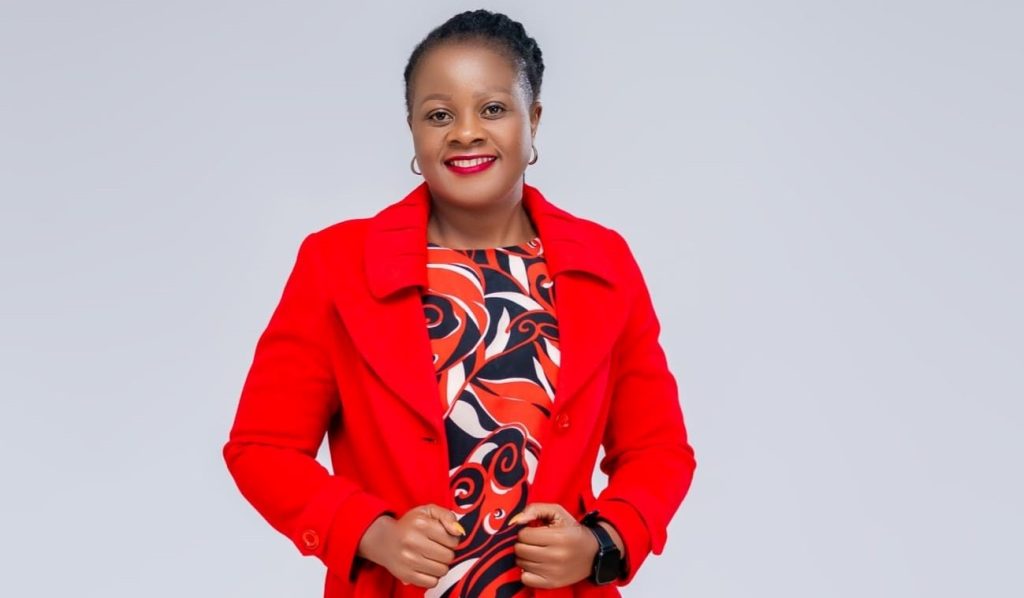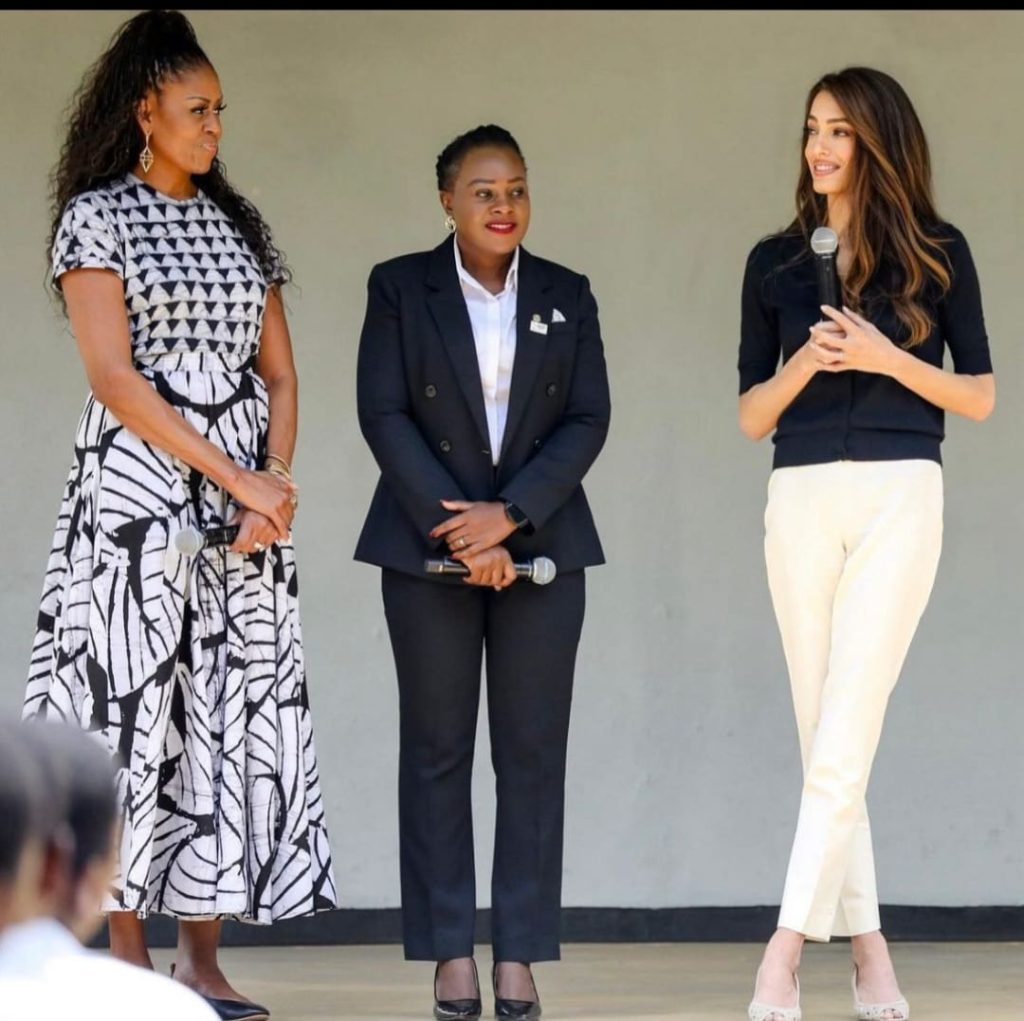Ulanda Mtamba: One of BBC’s most influential 100 women
“Some were born great, some achieve greatness and others have greatness thrust upon them,” William Shakespeare.
These phrases best capture Ulanda Mtamba, an advocate for adolescent girls and young women’s rights.

She achieved greatness and was recently named one of the 2023 most influential 100 women in the world by the BBC.
This is an award given to women who have made a difference in their country.
Ulanda considers it a great honour to herself and Malawi as a country.
“What I do is a ministry of its own. I dedicate my life to ensuring that girls access quality education, sexual and reproductive health services, as well as know their rights,” she says.
Ulanda, who grew up in Traditional Authority (T/A) Tsabango in Lilongwe, would have easily dropped out of school due to the prevailing norms during her time.

She recalls that it was common for girls to leave school for marriage.
No one questioned the anomaly as it was regarded normal.
Ulanda explains: “People did not value education, especially for girls. Few families sent their children to school.
“Fortunately, my family valued education and ensured I attended classes.”
Thus, despite society constraints of looking down on girls who worked hard in class, Ulanda did not give up.
She also had a role model within the family, her sister, who had gone further with education and was working with the Malawi Police Service at its headquarters in Area 30.
Thus when she reached Standard Two at Mlodza Primary School, her sister took her to continue her education at Police Primary School.
However, Ulanda lost her father when she was in Standard Eight, a setback which could have swayed her away from her dreams.
And when the Primary School Leaving Certificate of Education examinations were released, she was not selected to secondary school.
Her father’s death and failure to make it to secondary school threatened Ulanda’s ambitions and dreams.
However, where there is a will, there is a way, so they say.
The activist did not waste time whining about the two setbacks, but cast her eyes beyond the circumstances.
“So, I enrolled with Chimutu Malawi College Distance Education in Lilongwe . I worked very hard until Form Two when I earned a selection to Bwaila Secondary School.
“I was excited, but it was short-lived. I had to travel from Area 18, where I was staying with my sister to school. The distance was too long for a girl of my age,” she says.
Not willing to drop out, she started looking for boarding options in 1995.
She wrote to the Malawi National Examinations Board, explaining her predicament and requesting to be given a place at a boarding secondary school.
The response was favourable.
“I was given a place at Mzimba Secondary School. I did my forms three and four and was selected to study forestry at Mzuzu University in 1998.
“However, my dream was to become an advocate for girls’ rights. So, I turned down the offer,” she says.
Ulanda, looking at the challenges she faced to complete secondary school, decided to fight for the rights of girls.
So, she enrolled with Cambridge University through the Malawi Institute of Management, now called Malawi School of Government.
She pursued a bachelor’s degree in business and project management.
By 2003, she completed her degree.
Her first job landed her at the National Association for People Living with HIV and Aids in Malawi (Napham) in Lilongwe where she worked as a data officer.
After two years, she was promoted to monitoring and evaluation officer.
In 2005, Napham decided to expand to other regions.
So, there was a vacancy for regional coordinator.
Ulanda applied and was successful. She worked as regional coordinator for the central region for two and a half years.
In 2007, she got a job as coordinator for HIV and Aids Workplace Programme for United Nations (UN) Cares Programme.
She was hosted by United Nations Development Programme, but worked under 10 UN agencies.
In 2016, she did her masters in business administration with ESAMI.
In 2009, Ulanda left Lilongwe for Blantyre, where she took a job at Goal Malawi as a policy manager for gender, HIV and Aids.
However, her passion for education took her to study marketing at the Polytechnic, formerly a constituent college of the University of Malawi.
She spent between 2009 and 2013 studying until she became a chartered marketer.
From 2011 to 2018, Ulanda worked for Blantyre CCAP Synod’s Health and Development Commission as a project manager for health, HIV and Aids.
“After some years, I became head of programmes overseeing livelihoods, health, governance, orphans and vulnerable children,” she explains.
In 2018, Ulanda was awarded a fellowship with AVAC in the United States of America.
The one-year fellowship programme further exposed her to issues related to HIV prevention among adolescent girls and young women in Malawi.
“There were a lot of young people, especially girls, getting infected with HIV. Through my research, I discovered this was girls are always on the receiving end. They have little power to demand the use of protection during sex. This made them vulnerable to contracting the virus.
“So, I wanted to find out what interventions were being pursued to bring more options to empower girls to protect themselves from HIV,” she explains.
So, her advocacy supported the research institutions such as the John Hopkins and the University of Carolina, who were researching interventions such as pre-exposure prophylaxis (PrEP) and the Dapivirine Vaginal Ring.
During her research, she went to policy makers, girls and other stakeholders, telling them about other interventions than just condoms to protect girls from HIV.
For her, the power to use a condom or not, mostly lies in a man’s hands.
However, when she left the fellowship in 2018, the options were still in the pipeline.
In 2019, she joined AGE Africa as country director because her interest was to work with children in secondary schools.
Ulanda has touched my lives, especially girls with her interventions.
She believes that when girls attain quality education, they contribute meaningfully towards the development of their families, communities and country.
AGE Africa, is a member of Girls Opportunity Alliance, founded by former first lady of the United States of America Michelle Obama.
Last month, it hosted Obama, the girls education champion, Alma Clooney, the human rights lawyer and Global women health advocate Melinda French Gates, who flew from America to appreciate the work AGE Africa is doing.
The visitors, who toured Ludzi Girls Secondary School in Mchinji, were satisfied with the interventions.
“We felt honoured to be visited by such high profile people. They motivated the girls to work hard in class to achieve their goals,” she beams.
Ulanda has helped terminate children’s marriages and return them to school.
So far, the organisation is supporting over 350 girls with scholarships in secondary schools and 80 scholars in public universities.
Some of the girls she supported have completed university education and others have become advocates against child marriages.
The director dedicates the BBC award to the girls she works with, saying without their concerted efforts to fight against child marriages and showing resilience against other constraints, she would not be recognised.
Indeed, it just takes one brave heart like Ulanda’s to inspire girls to remain on the right path.
Hers is a life dedicated to the cause of others.
In the words of Albert Einstein: “Only a life lived for others, is a life worthwhile.”






One Comment